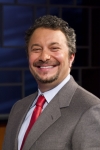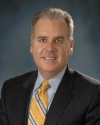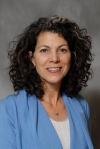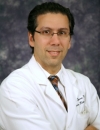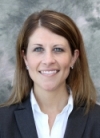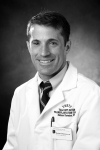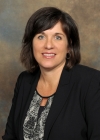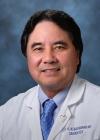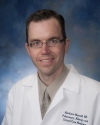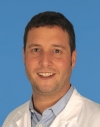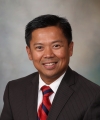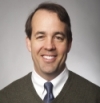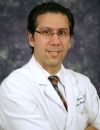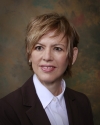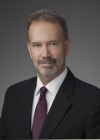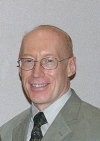Faculty Bios
Learn more about the expert speakers participating in AST's online education activities. You may view an individual's conflict of interest disclosure by clicking on the link in his/her section, or by visiting the conflict of interest disclosure home page.
- Independent Living Donor Advocate Webinar Series 2015
- Timely Topics in Transplantation Webinar Series 2014-2015
- Business of Transplantation Webinar Series 2014
Independent Living Donor Advocate Webinar Series 2015
Timely Topics in Transplantation Webinar Series 2014-2015
|
|
Gena Boyle is a Policy Manager in the UNOS Policy Department. She is also the Liaison to the OPTN Kidney Transplantation Committee. She has served in this role since 2012. Gena received her MPA degree from Virginia Tech. Prior to joining UNOS, she spent four years as a health policy advisor to Virginia Governor Tim Kaine.
>View conflict of interest disclosure >Return to Timely Topics in Transplantation Webinar Home Page |
Presenting: Kidney Allocation System Changes: Strategies to Improve Recipient Readiness and Reduce Disparities on 11/4/14 |
|
Kimberly Brown, MD • Henry Ford Hospital
|
Dr. Kimberly A. Brown is the Chief of Gastroenterology and Hepatology at Henry Ford Hospital in Detroit. She joined the Henry Ford Medical Group in 1995 as medical director of the liver transplant program and was appointed Chief of the division of gastroenterology and hepatology in 2003. In addition, she served as the program director for the GI fellowship program from 2003 to 2008. Dr Brown received her undergraduate degree from the University of Michigan in 1981. She completed her medical degree at Wayne State University in 1985. Dr Brown completed both her residency in internal medicine as well as her fellowship in gastroenterology at the University of Michigan in 1992 and was named chief medical resident in 1984-85. As Chief of Gastroenterology and Hepatology and past medical director of liver transplantation, Dr Brown sees and manages patients with complex liver disease both before and after liver transplantation. In conjunction with Dr Abouljoud, she worked to develop the leading liver transplant program in the State of Michigan. As fellowship director, she managed a fellowship program of 12 GI/liver fellows and continues to be involved in structuring and monitoring their education and academic success. She has published over 40 articles, 80 abstracts and 8 book chapters/reviews and is a very active clinical investigator in viral hepatitis, advanced liver disease and post liver transplant management. >View conflict of interest disclosure >Return to Timely Topics in Transplantation Webinar Home Page |
Presenting: Update on Hepatitis C Eradication Including Renal Clearance and Dosing and Important DDI Highlights on 5/19/15 |
|
Lara Danziger-Isakov, MD, MPH • Cincinnati Children's Hospital Medical Center
|
Lara Danziger-Isakov, MD, MPH, practices pediatric infectious diseases at Cincinnati Children's Hospital Medical Center where she is Associate Professor of Pediatrics at the University of Cincinnati. Dr. Danziger-Isakov earned her MD at Case Western Reserve University School of Medicine and complete her residency in Pediatrics at the Cleveland Clinic. She also completed a fellowship in Pediatric Infectious Diseases at Saint Louis Children's Hospital. Dr. Danziger-Isakov is board-certified in Pediatrics and Pediatric Infectious Diseases by the American Board of Pediatrics. Her clinical interests include pediatric infectious diseases, infections in transplant recipients, and infections in immunocompromised patients. Her research interests include outcomes related to infection after pediatric transplantation with an emphasis on pediatric and adult lung transplantation. In addition, Dr. Danziger-Isakov participates in clinical trials to evaluate both new infectious disease therapies and new method of detection for infectious diseases.
>View conflict of interest disclosure >Return to Timely Topics in Transplantation Webinar Home Page |
Presenting: Vaccine Updates in SOT: What's New, What's Standard of Care? on 11/18/14 |
|
Richard Formica, MD • Yale University
|
Richard Formica, M.D. chairs the OPTN/UNOS Kidney Transplantation Committee. Dr. Formica is an Associate Professor of Medicine and Surgery at Yale University School of Medicine and is the Medical Director of kidney and pancreas transplantation at Yale-New Haven Hospital. He earned his medical degree at Boston University School of Medicine. Dr. Formica is board certified in both nephrology and internal medicine.
>View conflict of interest disclosure >Return to Timely Topics in Transplantation Webinar Home Page |
Presenting: Kidney Allocation System Changes: Strategies to Improve Recipient Readiness and Reduce Disparities on 11/4/14 |
|
John Friedewald, MD • Northwestern Medicine
|
John J. Friedewald, MD, is a transplant nephrologist on the medical staff at Northwestern Memorial Hospital and an associate professor of Medicine and Surgery at Northwestern University Feinberg School of Medicine. After earning an undergraduate degree in psychology from Princeton University and a medical degree from Columbia University College of Physicians and Surgeons, Dr. Friedewald completed his residency in Internal Medicine and fellowship training in Nephrology both at Johns Hopkins Hospital in Baltimore. Dr. Friedewald’s clinical interests include innovative methods to expand live donor kidney transplantation such as kidney paired donation and incompatible transplants. In 2013 he completed a two-year term as chair of the United Network for Organ Sharing (UNOS) Kidney Committee during which time he led the effort to substantially revise the national kidney allocation policy for the first time in several decades. He has also chaired the UNOS Committee for Kidney Paired Donation, charged with creating a unified, national kidney paired donation system. Dr. Friedewald is the director of Clinical Research for the Comprehensive Transplant Center at Feinberg. His funded research activities include studies looking to advance the non-invasive diagnosis of rejection using proteogenomic biomarkers, to study the genetic basis for transplant outcomes, and to improve detection and treatment of chronic antibody-mediated rejection. >View conflict of interest disclosure >Return to Timely Topics in Transplantation Webinar Home Page |
Presenting: Multiorgan Transplantation: One Organ Too Many? on 2/10/15 |
|
Elisa Gordon, PhD, MPH • Northwestern University
|
Dr. Gordon is Associate Professor in the Center for Healthcare Studies and Comprehensive Transplant Center at the Northwestern University Feinberg School of Medicine, Chicago, Illinois. Dr. Gordon trained as a medical anthropologist at Case Western Reserve University and as a clinical ethicist at the University of Chicago. She received her Master’s degree in public health at University of Illinois at Chicago with an emphasis on community health. Dr. Gordon conducts mixed-methods research on informed consent and other ethical issues pertaining to kidney transplantation and living donation, with funding support from then-HCFA, HRSA, NIDDK, NIAID, and NINR. She serves as the Vice Chair of the UNOS Ethics Committee, on the Editorial Board of the American Journal of Transplantation, and as Treasurer of the American Society for Bioethics and Humanities. She has over 70 peer-reviewed publications on ethical issues in organ transplantation, human subjects research ethics, and self-care management.
>View conflict of interest disclosure >Return to Timely Topics in Transplantation Webinar Home Page |
Presenting: Medically Complex Living Donors: Candidacy, Care, and Informed Consent on 2/17/15 |
|
Peter Heeger, MD • Icahn School of Medicine at Mount Sinai
|
Peter S. Heeger, MD is a graduate of the University of Pennsylvania School of Medicine (1984). He completed medical residency training along with a Chief Medical Resident year at Temple University Hospital in Philadelphia (1984-1988) and then clinical and research Nephrology training at the University of Pennsylvania (1988-93). After developing a research interest in transplantation in Cleveland OH (Case Western and the Cleveland Clinic), Dr. Heeger moved to the Icahn School of Medicine at Mount Sinai (NY) where he is currently the Irene and Arthur Fishberg Professor of Medicine and Director of the Translational Transplant Research Center. Dr. Heeger has been continuously funded through the National Institutes of Health for 19 years for studies in transplantation immunobiology. He currently leads an NIH consortium, Clinical Trials in Organ Transplantation, which is conducting multiple international trials to assess the utility of noninvasive biomarkers to predict outcomes and guide treatment strategies in transplant recipients. Dr. Heeger’s basic science research interests are in mechanisms of allograft injury and tolerance, with a specific focus on interactions between the complement system and T lymphocytes. Dr. Heeger is the author of > 140 publications. He currently is a member of the TTT NIH study section for grant reviews, is an associate editor and reviewer for multiple immunology, transplant and nephrology journals (including J Clin Invest and Am J Transplantation), and is the 2011 recipient of the Established Investigator Award from the American Society of Transplantation.
>View conflict of interest disclosure >Return to Timely Topics in Transplantation Webinar Home Page |
Presenting: Monitoring the Alloresponse Before and After Transplantation on 3/31/15 |
|
Atul Humar, MD • University Health Network-University of Toronto
|
Atul Humar is a Professor in the Department of Medicine, University of Toronto. Dr. Humar received his medical degree from the University of Ottawa. He completed his residency and did further training in Transplant Infectious Diseases in Toronto and Boston. Dr. Humar’s research interests are in virology with a focus on the pathogenesis of herpesvirus infections post-transplant. He is involved in both basic and clinical research assessing immunologic and virologic determinants of infection. Dr. Humar is the Director of Multi Organ Transplant Program at the University Health Network and the University of Toronto Transplant Institute. He is also active in the Canadian Society of Transplantation as a Vice-President and has been very active in both the AST and TTS.
>View conflict of interest disclosure >Return to Timely Topics in Transplantation Webinar Home Page |
Presenting: Cytomegalovirus: Prevention, Therapy, Immunity on 4/21/15 |
|
Tiffany Kaiser, PharmD • University of Cincinnati
|
Dr. Tiffany Kaiser is an associate professor of medicine in the Division of Digestive Diseases at The University of Cincinnati (UC), practicing as a transplant clinical pharmacist at UC Medical Center. She is an assistant adjunct professor at the College of Pharmacy and an assistant director of the PGY2 transplant specialty residency in Cincinnati. She received her Pharm.D. degree from The Ohio State University and completed a pharmacy practice residency at the University of Illinois at Chicago and a specialty residency in solid-organ transplantation at UC. She is a board-certified pharmacotherapy specialist and a fellow of the American College of Clinical Pharmacy (ACCP). She has served as primary or co investigator on multiple industry or NIH sponsored clinical trials. She is involved in pharmacy, liver, and transplant organizations and has previously served as chair of ACCP’s Immunology/Transplantation practice based network. She has presented nationally and published many articles in the areas of liver disease and transplantation. >View conflict of interest disclosure >Return to Timely Topics in Transplantation Webinar Home Page |
Presenting: Update on Hepatitis C Eradication Including Renal Clearance and Dosing and Important DDI Highlights on 5/19/15 |
|
Jon Kobashigawa, MD • Cedars-Sinai Heart Institute
|
Jon Kobashigawa, MD is Associate Director of the Cedars-Sinai Heart Institute, Director of Advanced Heart Disease Section and Director of the Heart Transplant Program at Cedars-Sinai Medical Center. He holds the DSL/Thomas D. Gordon Chair in Heart Transplantation Medicine. He received his undergraduate degree at Stanford University and earned his medical degree at Mount Sinai School of Medicine in New York. He is a Past President of the International Society of Heart and Lung Transplantation. Dr. Kobashigawa is recognized nationally and internationally as a leader in the heart transplantation field. He has published over 250 peer reviewed articles, chapters and monographs in the field of heart failure and transplantation and has chaired several multi-center studies. Dr Kobashigawa has organized and chaired several International Consensus Conferences to discuss pertinent questions in the field of heart failure and heart transplant. He lectures at universities around the world and mentors young physicians who have ascended to important academic positions throughout the country. >View conflict of interest disclosure >Return to Timely Topics in Transplantation Webinar Home Page |
Presenting: Treatment of Antibody-mediated Rejection in Thoracic transplants: Role of desensitization, histopathological diagnosis and management strategies of different types of AMR on 1/20/15 |
|
Camille Kotton, MD • Massachusetts General Hospital
|
Camille Nelson Kotton MD is the clinical director of the Transplant Infectious Disease and Compromised Host Program at the Massachusetts General Hospital, and Associate Professor of Medicine, Harvard Medical School, Boston, Massachusetts. She also leads the outpatient Transplant Infectious Disease Clinic. She is the current co-chair of The Infectious Disease Community of Practice of The American Society of Transplantation. She serves on The Disease Transmission Advisory Committee for The United Network Organ Sharing, The Advisory Committee on Blood and Tissue Safety and Availability, and is a contributing member for World Health Organization (WHO) Project NOTIFY (Donor Derived Infections). From 2007-2013 she was the president of The Transplant Infectious Disease Section of The Transplantation Society. Highlights of her time as president include the development of international guidelines on CMV management after solid organ transplant, followed by an updated version, published in Transplantation (2010 and 2013). She has also organized and contributed significantly to a meeting on management of tuberculosis issues in organ donors, recently published in the American Journal of Transplantation. In addition, she organized and led five international Transplant Infectious Disease meetings (Vancouver, 2010; Glasgow, 2011; Berlin, 2012; Vienna, 2013; Barcelona, 2014), and organized an international group of experts on the topic of transplant infectious disease in composite tissue allografts, for which they are actively developing guidelines for clinical management. Her clinical interests include cytomegalovirus, donor-derived infections, zoonoses, and travel and tropical medicine in the transplant setting.
>View conflict of interest disclosure >Return to Timely Topics in Transplantation Webinar Home Page |
Presenting: Cytomegalovirus: Prevention, Therapy, Immunity on 4/21 |
|
Deepali Kumar, MD, MSc, FRCPC • University Health Network
|
Dr. Deepali Kumar is Associate Professor of Medicine, University of Toronto and Active Staff at the University Health Network in the Transplant Infectious Diseases program. Her clinical and research interests focus on infections in the immunocompromised host and include vaccine-preventable diseases as well as the epidemiology of emerging infections in transplantation in solid organ and stem cell transplantation. She is Past-Chair of the American Society of Transplantation (AST)-Infectious Diseases Community of Practice and Associate Editor of the 3rd Edition of the AST ID Guidelines. She also is member of the Canadian National Advisory Committee on Immunization and Canadian Standards’ Association technical committee for Tissue and Organ transplantation.
>View conflict of interest disclosure >Return to Timely Topics in Transplantation Webinar Home Page |
Presenting: Vaccine Updates in SOT: What's New, What's Standard of Care? on 1/18/14 |
|
Matt Morrell, MD • University of Pittsburgh School of Medicine
|
Matthew Morrell graduated summa cum laude from the University of Utah with a bachelor of science in chemistry. Afterwards, he attended the University of California in Los Angeles School of Medicine where he received his Doctor of Medicine degree and was elected to the Alpha Omega Alpha Honor Society. He then completed both his residency in internal medicine and fellowship in pulmonary and critical care at Washington University in St. Louis/Barnes-Jewish Hospital. During this time he was awarded the Shatz-Strauss Teaching Award and the Washington University School of Medicine Resident of the Year Award. In July 2009, he joined the faculty of the Division of Pulmonary, Allergy and Critical Care Medicine at the University of Pittsburgh as an Assistant Professor. Dr. Morrell’s main clinical interests are concentrated on the care of pulmonary transplant recipients and patients with end-stage lung disease. Dr. Morrell’s clinical research interests have included the risk factors for the development of chronic lung allograft dysfunction. >View conflict of interest disclosure >Return to Timely Topics in Transplantation Webinar Home Page |
Presenting: Treatment of Antibody-mediated Rejection in Thoracic transplants: Role of desensitization, histopathological diagnosis and management strategies of different types of AMR on 1/20/15 |
|
Thomas Mueller, MD, PhD • University Hospital Zurich
|
Biography unavailable. | Presenting World Transplant Congress 2014: Clinical Highlights on 10/21/14 |
|
Christian Oberkofler, MD • University Hospital Zurich
|
After college at the Medical University Innsbruck (Austria) and promotion in Bologna (Italy), Dr. Oberkofler completed his surgical training at the University Hospital Zurich (Switzerland), including rotations in Wil (SG, Switzerland) and Muri (AG, Switzerland). As part of the academic training he spent 2.5 years in the laboratory under the direction of Prof. Pierre-Alain Clavien and examined new experimental approaches to mitigate the effects of ischemia-reperfusion injury to abdominal organs. Since July 2014 he is a staff physician at the department of visceral- and transplantation surgery of the University Hospital Zurich and is dedicated clinically and experimentally to transplant and vascular access surgery.
>View conflict of interest disclosure >Return to Timely Topics in Transplantation Webinar Home Page |
Presenting: World Transplant Congress 2014: Clinical Highlights on 10/21/14 |
|
Raymund Razonable, MD • Mayo Clinic
|
Raymund R. Razonable, MD, is Professor of Medicine at the College of Medicine at Mayo Clinic in Rochester, Minnesota. He serves as the Director of Transplant Infectious Disease Program, Associate Chair for Faculty Development, Program Director of the Transplant ID Fellowship Program, and Associate Program Director of the Infectious Disease Fellowship Program in the Division of Infectious Diseases at the Mayo Clinic. Dr Razonable’s clinical interests include infections in immunocompromised hosts. His research addresses immunovirology and transplant infections, with specific interest in cytomegalovirus infections. He has authored more than 150 peer-reviewed original and review articles, more than 30 book chapters, and more than 140 abstracts on these topics. He has been a sought-after speaker at regional, national, and international meetings. Dr Razonable is an editor of the journal Transplant Infectious Diseases, and serves on the editorial boards of several journals. A recipient of many awards and honors throughout his career, Dr Razonable was inducted as a Fellow of the Infectious Diseases Society of America in 2011. He is a member of several other professional societies, including the American Medical Association, American Society for Microbiology, American Society of Transplantation (AST), AST Infectious Disease Community of Practice, the Immunocompromised Host Society, and the Transplantation Society. >View conflict of interest disclosure >Return to Timely Topics in Transplantation Webinar Home Page |
Presenting: Cytomegalovirus: Prevention, Therapy, Immunity on 4/21/15 |
|
|
Peter P. Reese, MD MSCE is a transplant nephrologist at the Penn Transplant Institute and Assistant Professor of Medicine and Epidemiology at the Perelman School of Medicine at the University of Pennsylvania. After earning an undergraduate degree at Princeton in anthropology and a medical degree at Johns Hopkins, Dr. Reese completed residency and a chief residency year in internal medicine at the Brigham and Women’s Hospital in Boston. He then completed renal fellowship and transplant subspecialty training at Penn. Dr. Reese's primary research focus is the development of effective strategies to increase access to kidney transplantation. He uses tools from epidemiology, biostatistics, and medical ethics to describe disparities in transplantation and methods to overcome them. His research portfolio also includes the development of effective strategies to improve health behaviors such as medication adherence. Through the United Network for Organ Sharing, where he serves as chair of the Ethics Committee, he helps to translate clinical research into effective national policy. In the last five years, Dr. Reese’s research efforts have been supported by grants from the NIH, the Greenwall Foundation and the American Society of Transplantation. In recognition of his contributions to transplant research, he received a 2011 Presidential Early Career Award for Scientists and Engineers. >View conflict of interest disclosure >Return to Timely Topics in Transplantation Webinar Home Page |
Presenting: Multiorgan Transplantation: One Organ Too Many? on 2/10/15 |
|
David Serur, MD • New York Presbyterian Weill Cornell
|
Dr. Serur came to Cornell in 1991 with an interest in clinical transplantation and is now Medical Director of the kidney transplant program. Research interests have included pharmaceutical industry supported studies of new transplant medications as well as investigator-initiated studies. Dr. Serur was one of the earliest proponents of offering kidney transplantation to HIV patients on dialysis, something that many thought was too risky but is now routinely done. He serves on the editorial board of the journal Transplantation and is on the medical boards of the NY Organ Donor Network and the Manhattan chapter of TRIO, the transplant recipient organization. Being involved in kidney paired exchange since its inception at Cornell, Dr. Serur has volunteered as Medical Director of the National Kidney Registry, the largest paired exchange program in the world.
>View conflict of interest disclosure >Return to Timely Topics in Transplantation Webinar Home Page |
Presenting: Medically Complex Living Donors: Candidacy, Care, and Informed Consent on 2/17/15 |
|
Norah Terrault, MD, MPH University of California, San Francisco
|
Dr. Norah Terrault is the Professor of Medicine and Surgery and the Director of the Viral Hepatitis Center at the University of California San Francisco. She is recognized nationally and internationally for her work related to viral hepatitis, especially in the setting of liver transplantation. She has authored over 120 original articles, reviews and book chapters on the epidemiology, natural history and management of chronic liver diseases. She serves on the AASLD Governing Board and is the Deputy Editor for Liver Transplantation and Associate Editor for Hepatology. She is an investigator on several NIH-funded clinical studies in hepatitis B and C, and is an investigator on several ongoing clinical trials of antiviral therapies for patients with chronic hepatitis B and C. >View conflict of interest disclosure >Return to Timely Topics in Transplantation Webinar Home Page |
Presenting: Hepatitis C Treatment in Non-liver Solid Organ Transplant Recipients on 3/17/15 |
Business of Transplantation Webinar Series 2014
|
|
With more than 25 years of experience in health care leadership, specifically in organ donation and transplantation, Kevin A. Myer, MSHA, took the reins of president and CEO of LifeGift in January, 2013. Myer joined LifeGift from the United Network of Organ Sharing (UNOS), where he served as the business director for the organization’s Center for Transplant System Excellence. In this role, Myer led efforts to improve the organ transplantation system through multiple funded research projects using non-traditional approaches and collaborative research teams. Previously, Myer was the assistant director for the UNOS Department of Evaluation and Quality, where he oversaw policy compliance auditing, organ allocation analysis and led special projects in patient safety. Before his tenure at UNOS, Myer held the positions of executive director and vice president of LifeNet Health, an organ procurement organization (OPO) and biomedical implant agency based in Virginia. Myer received his Bachelor of Science degree from Cornell University in Ithaca, N.Y. and earned his Master of Science in health administration degree from the Medical College of Virginia/Virginia Commonwealth University in Richmond, Va. He also completed a fellowship in patient safety at Virginia Commonwealth University. |
Presenting: OPO and Transplant Center Collaborations on 9/10/14 |
|
William Vaughan • Guidry & East
|
William Vaughan is a nationally recognized consultant in organ transplant operations, and he has extensive experience in Medicare reimbursement. He was employed for 11 years by Aetna Life and Casualty Insurance in Hartford, Connecticut (a Medicare Intermediary). During that time, he served as an administrator of Medicare Part A field offices and of the Medicare End-Stage Renal Disease Reimbursement Program, concerned with tissue-typing laboratories and independent organ procurement agencies. In addition, William was Vice President of Reimbursement at LifeLink Foundation, Inc., Tampa. William has worked as a consultant with a number of health care providers in the areas of financial reporting, record keeping and management. He has also helped new health care organizations develop financial and organizational structures. |
Presenting: OPO Finance on 10/8/14 |
|
|
Jon Friedman, MD, has been with Optum for 14 years. Seven years as PacifiCare’s Medical Director of their National Preferred Transplant Network (prior to the merger with UnitedHealth Group), six years with Optum as the National Medical Director of Transplants and Congenital Heart Disease, and the last year as Chief Medical Officer for Optum’s Complex Medical Conditions programs. Prior to joining PacifiCare in 2000, Dr. Friedman spent 10 years in practice with HealthCare Partners Medical Group in Los Angeles, where he had oversight of Utilization Management and Quality Improvement for their Los Angeles Region. Dr. Friedman holds a BA in Biochemistry from the University of Pennsylvania, Philadelphia, PA; an MD from Washington University Medical School in St. Louis; and a Fellowship in Geriatric Medicine from UCLA, Los Angeles. He is Board Certified in both Internal Medicine and Geriatric Medicine. Dr. Friedman is a member of the American Society of Transplantation. |
Presenting: Changes in the Healthcare Environment and Transplantation on 11/12/14 |
|
Thomas Hamilton, MA • Centers for Medicare and Medicaid Services
|
Since 2003 Thomas E. Hamilton has served as the Director of the Survey and Certification Group within the U.S. Centers for Medicare and Medicaid Services (CMS). He directs the work of 7000 surveyors at the State and federal levels who perform quality of care inspections for more than 100,000 providers that participate in the Medicare or Medicaid programs, or that provide laboratory services under the Clinical Laboratory Improvement Amendments (CLIA). From 1999-2003 Mr. Hamilton served as the Director of CMS’ Disabled and Elderly Health Programs Group. In that capacity he was responsible for Medicaid policy and programs for low income elderly and adults with a disability For 21 years prior to joining CMS Mr. Hamilton was one of the principal architects of the Wisconsin system of health and long-term care (LTC). A native of Massachusetts, Mr. Hamilton received a bachelor’s degree in 1973 from Brandeis University in Waltham, MA before conducting graduate studies at the University of Wisconsin. |
Presenting: Changes in the Healthcare Environment and Transplantation on 11/12/14 |
| Patricia Martin, RN, BSN • WellPoint, Inc. |
Pat Martin, RN, BSN, joined WellPoint, Inc in May 2003 as a Clinical Research Coordinator in the Corporate Medical Policy Project Management Office. In that role, Pat helped the department to identify, develop, implement, and analyze new and emerging technologies for policy development. In May 2005, Pat assumed the role of Director, Specialty Network Management responsible for providing strategic direction for WellPoint’s 14 Anthem Blue Cross Blue Shield plan’s transplant network. She has served on subcommittees of both the United Network for Organ Sharing and American Society for Blood and Marrow Transplantation. Pat has an extensive background in clinical transplantation and nursing administration. She was previously employed with a hospital-based organ procurement organization and transplant center. Pat holds certifications in Medical/Surgical Nursing, Oncology Nursing, Clinical and Procurement Transplantation. |
Presenting: Changes in the Healthcare Environment and Transplantation on 11/12/14 |
Donate
Donate
Career Center
Career Center
Patient Education
Patient Education
Educational Content Disclaimer: The content, information, opinions, and viewpoints contained in educational materials housed on and linked from the AST web site are those of the authors or contributors of such materials. While the AST and its committees take great care to screen the credentials of the contributors and make every attempt to review the contents, AST MAKES NO WARRANTY, EXPRESSED OR IMPLIED, as to the completeness or accuracy of the content contained in the educational materials or on this website. The reader of these materials uses these materials at his or her own risk, and AST shall not be responsible for any errors, omissions, or inaccuracies in these materials, whether arising through negligence, oversight, or otherwise. Reliance on any information appearing on this site is strictly at your own risk. Read the full disclaimer.

